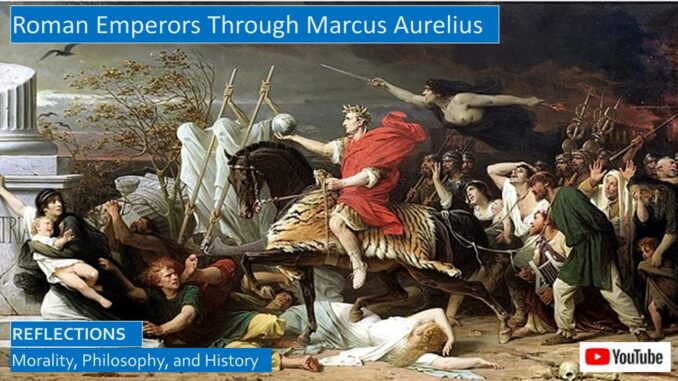
What can we learn from reflecting on the Roman Emperors before Marcus Aurelius?
What was the balance of power between the Senate and the Emperors?
How could a rogue emperor be removed?
What role did the Roman Army play in politics and succession?
Why were there five good emperors in a row?
Why did Hadrian consolidate rather than expand the empire? What effect did this policy have on the Roman Empire?
Could Hadrian sometimes be just as cruel as Commodus?
YouTube Script with Book Links:
https://www.slideshare.net/BruceStrom1/roman-emperors-before-marcus-aurelius
YouTube video for this blog: https://youtu.be/6i–hVIpg1k
MARCUS AURELIUS: PHILOSOPHER KING
When examining the reign of Marcus Aurelius, the last of the five good Roman Emperors, we need to understand the broad sweep of the early history of the Roman Empire that succeeded the Roman Republic. The Roman state celebrated the 900th anniversary of its traditional founding by the mythical Romulus and Remus shortly after Marcus Aurelius was born.
Marcus Aurelius is a fascinating figure in history. He was one of the great Roman Stoic philosophers, based on his Meditations, and he was also the last of the Five Good Roman Emperors, emperors who did not inherit their position, but were chosen for their temperament and abilities. Some of his Meditations extol Christian principles, but they also have references against Christians. But yet many historians, ancient and modern, say he persecuted Christians. What is more remarkable is that not only modern Christians want to believe that he didn’t persecute Christians, but many ancient Christians admired his philosophy and felt the same way, and this may have included St Justin Martyr.
Marcus Aurelius, Blog 1, Friend, or Foe, or Both, of Christianity?
http://www.seekingvirtueandwisdom.com/marcus-aurelius-blog-1-friend-or-foe-or-both-of-christianity/
Marcus Aurelius and Christian Persecutions: Friend or Foe?
https://youtu.be/-uQxq1O9xSY
Marcus Aurelius Blog 2, Others will be irritating, but not I!
http://www.seekingvirtueandwisdom.com/marcus-aurelius-blog-2-others-will-be-irritating-but-not-i/
Marcus Aurelius Blog 3 Genuine Friends Don’t Keep Scorecards
http://www.seekingvirtueandwisdom.com/marcus-aurelius-blog-3-genuine-friendships-have-no-scorecards/
Marcus Aurelius Blog 4 Be critical of yourself, be gracious towards your neighbor
http://www.seekingvirtueandwisdom.com/marcus-aurelius-blog-4-be-critical-of-yourself-be-gracious-towards-your-neighbor/
Marcus Aurelius Blog 5 Seeing life’s misfortunes through the eyes of our neighbor
http://www.seekingvirtueandwisdom.com/marcus-aurelius-blog-5-seeing-lifes-misfortunes-through-the-eyes-of-our-neighbor/
Marcus Aurelius: Meditations: Stoic View of Life
https://youtu.be/0qHpReZYhv4
Ordinary Life for Romans Under Stoic Emperor Marcus Aurelius
https://seekingvirtueandwisdom.com/ordinary-life-for-romans-under-stoic-emperor-marcus-aurelius/
https://youtu.be/9hgSbcgbCJw
The early Roman emperors, and the Five Good Emperors through Marcus Aurelius, had very little to do with Christians, and had almost no personal contact with Christians. Nero famously viciously persecuted Christians, but there was little desire by succeeding emperors in this period to seek out Christians for active persecution. Emperor Diocletian would viciously persecute the Christians, but that would be centuries after Marcus Aurelius.
After reviewing the biographies of Marcus Aurelius, and his son and successor, Commodus, an emperor as bloodthirsty as Nero, but who did not persecute the Christians, we will reflect on the history of Christian persecutions through the reign of Marcus Aurelius and his son, Commodus. We will also reflect on the ordinary lives of Romans in the time of Marcus Aurelius.
JULIUS CAESAR AND EARLY ROMAN EMPERORS
One weakness of the late Roman Republic is the troops owed their allegiance not to the Roman Republic, but to the general they served under. Because of this, the Roman Senate passed a law requiring generals to enter the city of Rome unattended, their troops had to remain on the other side of the Rubicon. The politics of the late Roman Republic under Cato and Cicero and many lesser senators were violent and unstable, Julius Caeser resolved the chaos of the Roman Republic when his troops crossed the Rubicon, which meant civil war.
REIGN
Julius Caesar assassinated 44 BC
Octavian consolidated power of emperor 27 BC-14 AD
Dramatically enlarged the empire, annexes Egypt
Nero committed suicide at end of reign 54-68 AD
First official persecution of Christians, only in Rome
Year of Four Emperors 69 AD
Vespasian and his sons, Titus and Domitian 69-96 AD
Roman Empire expanded through conquest
Domitian was assassinated by Praetorian Guard
The Five Good Emperors, 96-180 AD
selected for adoption by ability, crown not inherited.
Marcus Aurelius, last of the good emperors 161-180 AD
Commodus, perhaps worse than Nero 177-192 AD
Year of Five Emperors 193 AD
Year of Six Emperors, Crisis of Third Century 238 AD
Emperor Diocletian resolves this crisis, 284-305 AD
Separates Empire into east and west,
Officially persecutes Christians
Constantine, First Christian Emperor 306-337 AD
The important political questions in the Roman Empire were: how much power would the Roman Senate retain in the empire? How can you remove a bad emperor?
A conspiracy of over sixty senators plotted the assassination of Julius Caesar, his friend Brutus was among those who stabbed him to death on the floor of the Senate in 44 BC. His family was descended from the Brutus who had expelled the kings from Rome nearly five centuries earlier at the birth of the Roman Republic.[1]
Surprisingly, in his will Julius Caesar declared his nephew Octavian, who would also be known as Caesar Augustus, as his heir. His assassination was controversial, but Octavian eventually prevailed after winning the War of Actium, a civil war fought against Marc Antony and Cleopatra, he became the sole Emperor of Rome.
The remarkable last Greek Queen of Egypt, Cleopatra, had successfully seduced both Julius Caesar, then Marc Anthony, who were both married, and later many medieval and modern painters. When in Egypt, those around Julius Caesar did not want them to meet, she had her attendants smuggle her into his quarters rolled in a rug. After his death, she next seduced Marc Antony, but in the naval Battle of Actium, she and her fleet fled and sailed way, guaranteeing defeat.[2]
Many millennia later, Cleopatra in the guise of Elizabeth Taylor nearly bankrupted Twentieth Century Fox when her movie went overbudget, it was the most expensive film at that time. Cleopatra, in character, started an adulterous affair with Richard Burton, attracting scandalous headlines.[3] Back in the first century, wisely, Octavian refused to meet with Cleopatra in private, guaranteeing that he, too, would not be seduced.
We are in luck, Plutarch has written biographies of Julius Caesar, Brutus, Crassus, Pompey, and Marc Antony, as have other ancient historians, so sometime later we will reflect on these Lives of these noble Romans.
Although he was deferential to the Senate, Octavian was reluctant to adopt the customary grandiose titles of an emperor, although he did hold the real absolute power. This public humility dissuaded the senators from plotting to assassinate him like they did his uncle, though he certainly never gave them the chance. Octavian drastically expanded the frontiers of the empire, which meant lower taxes for the Italians, since these conquests flooded the labor market with slaves, and large amounts of booty were appropriated.[4]
As time passed, the Roman Senate lost more and more of its residual power. But the emperor could not run the empire by himself. Even when the senate itself was powerless, many of the Roman bureaucratic officials were drawn from the senatorial and equestrian ranks.
During the first century of the Roman Empire, some emperors were good, some were bad, and some were mad, including Caligula, who, in addition to proclaiming himself divine, may have planned to appoint as consul his horse. Caligula was incredibly unpopular, since he murdered many senators, and finally the ancient version of the Secret Service, the Praetorian Guard, assassinated Caligula.[5] The Roman soldiers found his successor Claudius hiding in the curtains. Surprisingly, Claudius was a somewhat competent emperor.
Under the guidance of his wise Stoic tutor Seneca, the first few years of Nero’s reign suggested that he would be a good emperor. But his megalomania and cruelties consumed him, he martyred Christians as scapegoats after Rome burned, he also murdered senators and opponents. In retirement, Seneca often pondered the topic of suicide, because he knew one day Nero’s soldiers would be at his door.
Seneca, Moral Epistles, Blog 1, Living Well, Dying Well
http://www.seekingvirtueandwisdom.com/seneca-moral-epistles-blog-1-living-well-dying-well/
Seneca, Moral Epistles, Blog 2, Stoicism and Living a Godly Life
http://www.seekingvirtueandwisdom.com/seneca-moral-epistles-blog-2-stoicism-and-living-a-godly-life/
Seneca, Moral Epistles, Blog 3, Loving Philosophy, Loving God, Loving our Neighbor
http://www.seekingvirtueandwisdom.com/seneca-moral-epistles-blog-3-loving-philosophy-loving-god-loving-our-neighbor/
Seneca, Moral Epistles, Blog 4, Stoic Concepts of Virtue and the Good
http://www.seekingvirtueandwisdom.com/seneca-moral-epistles-blog-4-stoic-concepts-of-virtue-and-the-good/
Seneca, Moral Epistles, Blog 5, On the Benefits of Friends and Keeping Score
http://www.seekingvirtueandwisdom.com/seneca-moral-epistles-blog-5-on-the-benefits-of-friends-and-keeping-score/
Seneca, Moral Epistles, Blog 6, Stoicism and the Golden Rule
http://www.seekingvirtueandwisdom.com/seneca-moral-epistles-blog-6-stoicism-and-the-golden-rule/
Seneca, Moral Epistles, Blog 7, Precious Stoic Nuggets of Wisdom
http://www.seekingvirtueandwisdom.com/seneca-moral-epistles-blog-7-precious-stoic-nuggets-of-wisdom/
Seneca the Younger, Roman Stoic Philosopher, Short Biography and Sayings
https://youtu.be/wgD8skYi3I0
Seneca: Stoic Sayings on Virtue, Friendship, Pleasure, Joy, and Philosophy
https://youtu.be/m4mcP2F9c4w
After Nero was compelled to commit suicide, the Roman Empire endured the chaotic year of four emperors. The eventual victor, General Vespasian, brought stability to the empire, though he refused to share power with the Senate, and was succeeded by his son Titus, then his son Domitian. Vespasian and Titus were effective and popular emperors, gaining the approval of the Senate. Though Domitian started out in their footsteps, he attracted opposition and was assassinated.
PROBLEMS OF SUCCESSION AND THE ROMAN ARMY
The only way to rid the empire of a bad emperor was by death, either by natural causes or by assassination. Usually when an unpopular emperor was assassinated, there were periods of instability where multiple emperors were in power for only a few months before they were overthrown in short civil wars. Usually, these civil wars were waged among the various Roman legions for the generals competing for power. These civil wars did affect many ordinary people in Rome, but these legions did not typically lay siege to cities or plunder or kidnap ordinary citizens as they did when expanding the borders of the empire. Of course, there likely was some plundering and kidnapping, that always happened in battles in the ancient world.
The composition of the Roman army itself changed during the centuries of the Roman Emperors. The Roman legions were manned by professional soldiers. If they served for twenty-five years, they earned a cash bonus of thirteen years salary. This was like a lottery as about half of these soldiers died before retirement, but those who did retire in the first century bought land in Italy and caused much political instability. In later centuries, many retired soldiers settled in towns in the provinces, binding them more tightly to Rome.
The percentage of Italians in the Roman legions likewise declined. Under Octavian about seventy percent of legionnaires were Italian, this declined to around a quarter of the legions by the year 100. By the time Marcus Aurelius was emperor, only two percent of the legionnaires were Italian.[6] This also applied to leaders, though the top leadership positions were only open to Roman citizens.
As McLynn, the biographer of Marcus Aurelius, observes, “The Roman Empire was an empire of conquest, and this simple fact had profound consequences for society at every level. The empire’s main sources of income were tribute paid by the conquered, indirect taxes on the sale of slaves, customs duties, and revenues from estates, mines, and other properties. Roman taxation was always relatively low,” “since the taxpayers were the defeated.” A land tax would not be passed until the fourth century.
NERVA AND TRAJAN, FIRST OF THE FIVE GOOD EMPERORS
Domitian’s successor, Emperor Nerva, was well-connected to both the Senate and the Emperors, and was the first of the five good emperors, all of whom were selected as the best Roman for the post, none of whom inherited their position. He was an old man when he was elevated to be emperor, he promised the Senate he would consult with them on all decisions, and that he would not put to death any senator. He recalled those whom Domitian had exiled, he distributed much land to the poor of Italy, and annulled many taxes.
We cannot improve upon Will Durant’s description of Nerva:
“With the assassination of Domitian, the principle of heredity disappeared for a century from Roman monarchy. The Senate had never recognized inheritance as a source of sovereignty; now, after 123 years of submission, it reasserted its authority; and as in Rome’s beginnings it had chosen the king, now it named one of its own members princeps and imperator.”
But the Praetorian Guard was not happy, after less than a year after he was named emperor, they besieged the palace, killing several of the emperor’s councilors. Will Durant said that “Nerva offered his throat to the swords of the soldiers, but they spared him. Humiliated, Nerva offered to abdicate, but his friends persuaded him, instead, to return to Augustus’ example and adopt as his son and successor a man acceptable to the Senate and capable of ruling not only the Empire, but the Praetorian Guard as well.”
Nerva thus adopted as his son and successor the popular general Trajan. The stress must have been too much for Nerva, he died shortly afterwards after a reign of only sixteen months.
The Roman Empire was at its zenith after the conquests of Emperor Trajan, he expanded the Roman Empire into England, expanded the provinces in North Africa and Egypt, and expanded eastward into Romania and Parthian Persia. The Senate gave him the title of Optimus, the best of emperors.
The reign of the Five Good Emperors lasted for nearly a hundred years.
THE FIVE GOOD EMPERORS REIGN
The Five Good Emperors selected for adoption by ability.
Nerva, died of natural causes 96-98 AD
Trajan, Roman Empire at its peak 98-117 AD
Hadrian, pulled back and consolidated 117-138 AD
Hadrian picked next two sets of emperors through adoption
Antoninus Pius, not ambitious, competent 138-161 AD
Marcus Aurelius, last of the good emperors 161-180 AD
Lucius Veras, co-emperor 161-169 AD
Will Durant describes his character: “Trajan never ceased to be a general. His carriage was military, his presence was commanding; his features were undistinguished but strong. Tall and robust, he was wont to march on foot with his troops and ford with full armament the hundred rivers they had to cross. His courage showed a stoic impartiality between life and death.”
Will Durant continues, “Trajan asked the Senate’s opinion on all matters of moment and discovered that he might wield nearly absolute power if he never used absolute speech. The Senate was willing to let him rule if he would observe the forms that maintained its dignity and prestige; like the rest of Rome, it now loved security too much to be capable of freedom.”[7]
HADRIAN CONSOLIDATES THE ROMAN EMPIRE
When Trajan died during campaign in the east in August 117 AD, Hadrian, commander of the Syrian troops, readily gained their support. But Hadrian felt threatened, he was unable to wait for the support of the Senate, so he executed those he thought would oppose him. This included several senators, gaining the everlasting hostility and suspicion of the Senate.[8] On the other hand, the historian Will Durant states that these opposing generals were executed by orders of the Senate, and that Hadrian objected that he had nothing to do with this.[9] Which means this history is a bit foggy.
Trajan’s successor Hadrian contracted the Empire slightly, abandoning some of Trajan’s eastern conquests to more defensible borders. He built the famous Hadrian Wall across Northern England.[10]
Hadrian was a Jekyll-and-Hyde emperor. At his worst, he could be cruel and heartless to those beneath him, though he never was insanely cruel as the mad emperors Caligula, Nero, and Commodus. At his best, he was both an excellent administrator and a savvy planner, seeking to ensure the stability of the empire for the next two generations. Since Hadrian had no heirs, he adopted as his successor Marcus Aurelius. But soon before his death, he decided to also adopt a relative, Antoninus Pius, as his son and immediate successor. Hadrian insisted that Antoninus Pius would, in turn, adopt as his sons both young Marcus Aurelius and Lucius Versus, and designate Marcus Aurelius as his successor, guaranteeing a smooth succession for two generations.
In addition to his careful succession planning, historians view these three main aspects of the two-decade rule of Hadrian:
- Hadrian’s open and predatory homosexuality.
- Hadrian’s peace policy, reversing the trend of Roman conquest from the strong emperors from Julius Caesar to his predecessor Trajan.
- Hadrian’s tireless travels throughout the vast Roman Empire.
Hadrian violated social norms by not marrying, and pursuing both adolescent and grown male lovers publicly, without discretion. His most famous lover was Antinous, who died mysteriously at age twenty, many speculate it was a suicide. Since Antoninus Pius and Marcus Aurelius were both practicing stoics, they could not condone Hadrian’s behavior, though they dare not object lest their adoptions be canceled.
Homosexuality, and pederasty, or men-boy love, was less tolerated in Roman culture than it was in Greek culture. No doubt there were varying opinions on this in the ancient world, but nobody conducted opinion polls back then. But many did condone the Greek attitudes on sexuality.
What where these Greek standards? In Plato’s dialogues on love, Socrates reflected on how divine love was superior to the often-predatory nature of romantic or carnal love, which in Greek culture was often the homosexual love between the pursuing older lover and a younger adolescent boy. Although Romans were not as accepting of homosexuality as were the Greeks, they did tolerate homosexuality and pederasty, or men-boy love. Once the younger boy became an adolescent at about age twenty, he would graduate to a bisexual lifestyle, where he would eventually marry and have children.
Xenophon and Plato, Socratic Dialogue, Symposium, Romantic and Carnal Love, Part 1
https://seekingvirtueandwisdom.com/xenophon-and-plato-socratic-dialogue-symposium-romantic-and-carnal-love-part-1/
https://youtu.be/OIe5pn2S1Ls
Xenophon and Plato, Socratic Dialogue, Symposium, Divine and Noble Love, Part 2
https://seekingvirtueandwisdom.com/xenophon-and-plato-socratic-dialogue-symposium-divine-and-noble-love-part-2/
https://youtu.be/z6X3pwVTdrc
Plato’s Dialogue of Phaedrus on Carnal Love and Rhetoric, Part 1
https://seekingvirtueandwisdom.com/platos-dialogue-of-phaedrus-on-carnal-love-and-rhetoric-part-1/
https://youtu.be/JFw5ThfwUAg
Plato’s Dialogue of Phaedrus on Divine Love and the Heavenly Chariot, Part 2
https://seekingvirtueandwisdom.com/platos-dialogue-of-phaedrus-on-divine-love-and-the-heavenly-chariot-part-2/
https://youtu.be/BOtavup_N4g
Lysis, Platonic Dialogue on Love and Friendship, Where Old Men Ogle Boys at the Gymnasium
https://seekingvirtueandwisdom.com/lysis-platonic-dialogue-on-love-and-friendship-where-old-men-ogle-boys-at-the-gymnasium/
https://youtu.be/HrSZ5SPUZ7Y
Hadrian’s peace policy was controversial, he abandoned Trajan’s conquests in Dacian Romania and Parthian Persia to concentrate on consolidating the Roman Empire. The problem was that the Roman Empire needed continual expansion, including war booty and slaves, to fund the empire and feed the growing populace of Rome. This policy certainly did not prevent future conflict with Parthian Persia.
Historians debate whether Hadrian’s defensive posture was wise. Were there prosperous provinces left to conquer on the frontiers? On the other hand, the successful expansion of the empire by the Byzantine Emperor Justinian several centuries later nearly bankrupted his Empire.
Finally, Hadrian constantly traveled through the Roman Empire. Many of the provinces had never seen a Roman Emperor. This certainly strengthened the bonds between Rome and her various provinces, and he listened to and resolved many of their complaints. These constant travels meant that he spent little time in Rome, which meant that he had little contact with the senators and Roman officials.
Hadrian spent lavishly on building programs and, like previous emperors, kept the common people quiet with bread and circuses, lavish gladiator and wild beast shows in the arena.
Hadrian saw himself as a polymath, and he was indeed well-read in philosophy. He showed political acumen when he forgave tax debts, making him popular with the Romans in Italy, and he was generous in granting donatives, or periodic bonuses, to his troops. But he had a dark side: he foreshadowed the disastrous emperor Commodus, he could be capricious, murdering senators at both the beginning and end of his reign. Hadrian loved watching his gladiators, and even fought in the arena himself to prove his skill with arms.
Although Hadrian’s reign was mostly peaceful, there were conflicts and rebellions in England, Spain, Germania and North Africa. But his most challenging was the violent Jewish Bar Cochba revolt near the end of his reign. The rebel’s meticulous planning led to their conquest of Palestine, but the Romans were the inevitable victors in a years-long war of attrition, where close to a thousand villages were razed with high casualties on both sides, Jewish casualties may have been in the hundreds of thousands.[11]
Hadrian’s successors continued his policy of consolidating the Empire rather than expanding through conquest. Though he had a long reign, Antoninus Pius became emperor late in life and rarely left Rome. Marcus Aurelius had ambitions to expand the empire in Germania, but he died before this conquest, and his son Commodus wanted to simply secure his Northern borders so he could return to Rome and fight with gladiators.
ANTONINUS PIUS ADMINISTERS THE EMPIRE FROM ROME
Hadrian had originally intended for Marcus Aurelius to succeed him as emperor. But near the end of his reign, when his health was failing, Hadrian surprised everyone by adopting as his son and successor, Antoninus Pius, a relatively unknown senator.
Why did Hadrian choose Antoninus Pius? The historian McLynn recounts Hadrian’s answer: The main reason was “Antoninus’ very lack of distinction and his middle age, for an older man might be senile and make grievous mistakes, while a younger one might be rash and headstrong.” “Antoninus was a perfect blank slate: he was a steady character, had no real enemies or ongoing feuds, had no siblings and just one daughter.”
Although Hadrian had ensured that Marcus Aurelius would be in the line of succession to be Roman Emperor, Hadrian is missing from his long list in his Meditations of those to whom Marcus Aurelius feels a debt of gratitude. Quite likely this was due to the years of terror he spent while forced to live in Hadrian’s household, wondering if he would be a victim rather than a future emperor. Prominent on that list is his predecessor Antoninus, who also ensured his continuing Stoic education. Antoninus was the opposite of Hadrian, he “put an end to the cult of sex with young boys.”[12]
Perhaps Hadrian’s plan was that Antoninus would be a placeholder emperor, reigning for half a dozen years until Marcus Aurelius was ready for the throne. But God, rather than men, determines how long we will live on this earth, and he reigned for over two decades. His first step was to convince the Senate to accept the deification of the hated Hadrian, and to declare amnesty for all who were condemned by Hadrian. He gained moral authority because he was willing to govern with the Senate as a partner.
How did he govern differently from Hadrian? What reforms did he enact? Antoninus separated the state funds from his personal wealth. He rejected Hadrian’s cult of pederasty, or men-boy love. Like Marcus Aurelius, he detested sycophants. He was willing to listen to experts, and include senators in discussions on policy.
In McLynn’s words, like Marcus, “Antoninus had a casual attitude to privilege and wealth, treating them both without arrogance and without apology; if there was good food and wine, he enjoyed them; but if not, he did not miss them.” He was reliable and predictable, he preferred tradition, he disliked change. But like Hadrian, he minimized taxation, at one point forgiving debts to the state.
In his later years, Antoninus nominated Marcus as consul with the title of Caesar so he could assist with administering the Empire, foreshadowing the Tetrarchy, or the rule of four, two emperors, two Caesars, that Diocletian would set up many decades letter. Later he appointed Lucius Verus as co-consul with Marcus. As his health faltered, Marcus assumed more administrative duties. Although Antoninus permitted Marcus to participate in introducing legislation before the Senate, he also kept a close eye on him, in his entire reign Marcus spent only two nights away from his company.[13]
When Marcus was elevated to Roman Emperor, he soon made Lucius Veras co-emperor, perhaps an unwise decision, but Lucius never challenged his position, he was more interested in carousing than governing.
In his memories of Antoninus Pius in his Meditations, Marcus Aurelius describes the ideal emperor to his son Commodus:
“Take Antoninus as your model always. Think of his qualities: energy in pursuit of the rational, steadiness, calmness, gentleness, modesty, sense of reverence, his intellectual curiosity and his lust for life.” “He tolerated unfair criticism,” “was contemptuous of informers, never made snap judgements, was patient and unhurried, an unrivaled judge of character. He rejected jealousy and character assassination, disdained empty rhetoric, knifed through to the essentials, lived in a spartan way, worked hard, often until dusk, and ate sparingly.”
Marcus Aurelius continues: “He was a good friend who knew his own mind and was not swayed by the last person to speak. He was constant as was not forever changing his mind or lacking a fixed set of values. He was not a prima donna, could tolerate criticism, and was even pleased if his ideas could be improved. He was deeply religious” but was not “superstitious. Think on all of this, so that when your time comes, your conscience will be as clear as his.”[14]
But in perhaps the most important aspect of their rules, Hadrian did outshine Marcus Aurelius. Hadrian set in place a succession guaranteeing that the last two good emperors would govern the Roman Empire wisely, with justice. Unfortunately, Marcus Aurelius spent much of this time as emperor fighting rebellious German tribes on Rome’s northern frontier.
But Marcus Aurelius put his love for his son, Commodus, over his obligations to ensure that the best man would succeed him as emperor. His son would turn out to be one of the most sadistically cruel Roman emperors in history, equaling Nero, in the end plunging the Empire into chaos when he was assassinated by his Praetorian Guard, backed up by senators who feared for their lives.
REIGN
Marcus Aurelius, last of the good emperors 161-180 AD
Commodus, perhaps worse than Nero 177-192 AD
Year of Five Emperors 193 AD
Year of Six Emperors, Crisis of Third Century 238 AD
Emperor Diocletian resolves this crisis, 284-305 AD
Separates Empire into east and west,
Officially persecutes Christians
Constantine, First Christian Emperor 306-337 AD
As was the case for Nero, the assassination of Commodus led to the chaotic year of five emperors. This was followed more than four decades of emperors, some good, some bad, some forgettable, that led to another year of six emperors, and it was not until more than four decades later Emperor Diocletian, and then Constantine, stabilized the Roman Empire, splitting it up into a more defensible Eastern Empire and Western Empire, that enabled the Byzantine Empire to survive for another millennium, while the Western Roman Empire succumbed to chaos.
DISCUSSING THE SOURCES
Many historians complain about the lack of ancient biographers and historians the caliber of Plutarch who can offer commentary on the life of these later Roman Emperors. But that does not mean a total lack of sources, we know the history of the Five Good Emperors in amazing detail. The modern historian Frank McLynn’s biography of Marcus Aurelius is over five hundred pages, about half of the pages are background information, including deep analysis of the emperors preceding him.
Anthony Birley also has an excellent, though slimmer, biography of Marcus Aurelius.
Although it is dated, written in 1944, Will Durant’s history, Caesar and Christ, also is a rich source of history and background, plus he is very quotable, an excellent writer.
[1] Will Durant, The Story of Civilization, Volume 3, Caesar and Christ, (New York: Simon and Schuster, 1961, 1944), p. 196.
[2] https://en.wikipedia.org/wiki/War_of_Actium
[3] https://en.wikipedia.org/wiki/Cleopatra_(1963_film)
[4] https://en.wikipedia.org/wiki/Augustus
[5] https://en.wikipedia.org/wiki/Caligula
[6] Frank McLynn, Marcus Aurelius, A Life (Philadelphia, PA, Da Capo Press, Random House 2009), pp. 87, 150-151.
[7] Will Durant, Caesar and Christ, pp. 407-409.
[8] Frank McLynn, Marcus Aurelius, A Life, p. 6 and Anthony Birley, Marcus Aurelius, A Biography (New York and Cambridge, Taylor and Francis, 1966, 2000), pp. 16-17.
[9] Will Durant, The Story of Civilization, Volume 3, Caesar and Christ, pp. 414-415.
[10] https://en.wikipedia.org/wiki/Hadrian%27s_Wall
[11] Frank McLynn, Marcus Aurelius, A Life, pp. 24-34 and https://en.wikipedia.org/wiki/Bar_Kokhba_revolt .
[12] Frank McLynn, Marcus Aurelius, A Life, pp. 37-45.
[13] Frank McLynn, Marcus Aurelius, A Life, pp. 69-77.
[14] Frank McLynn, Marcus Aurelius, A Life, pp. 94-97, he is quoting the Meditations, 6:30.

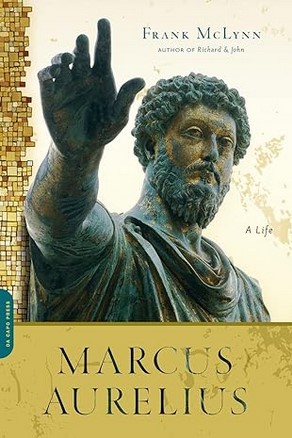
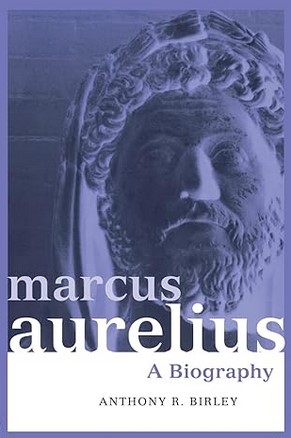
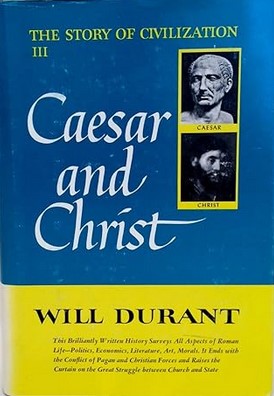
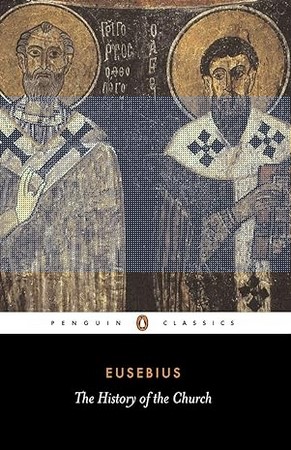
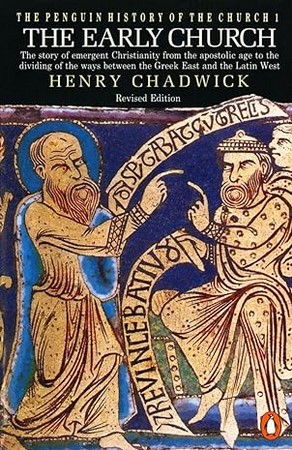

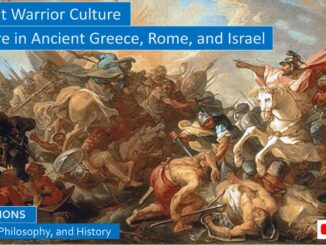

5 Trackbacks / Pingbacks